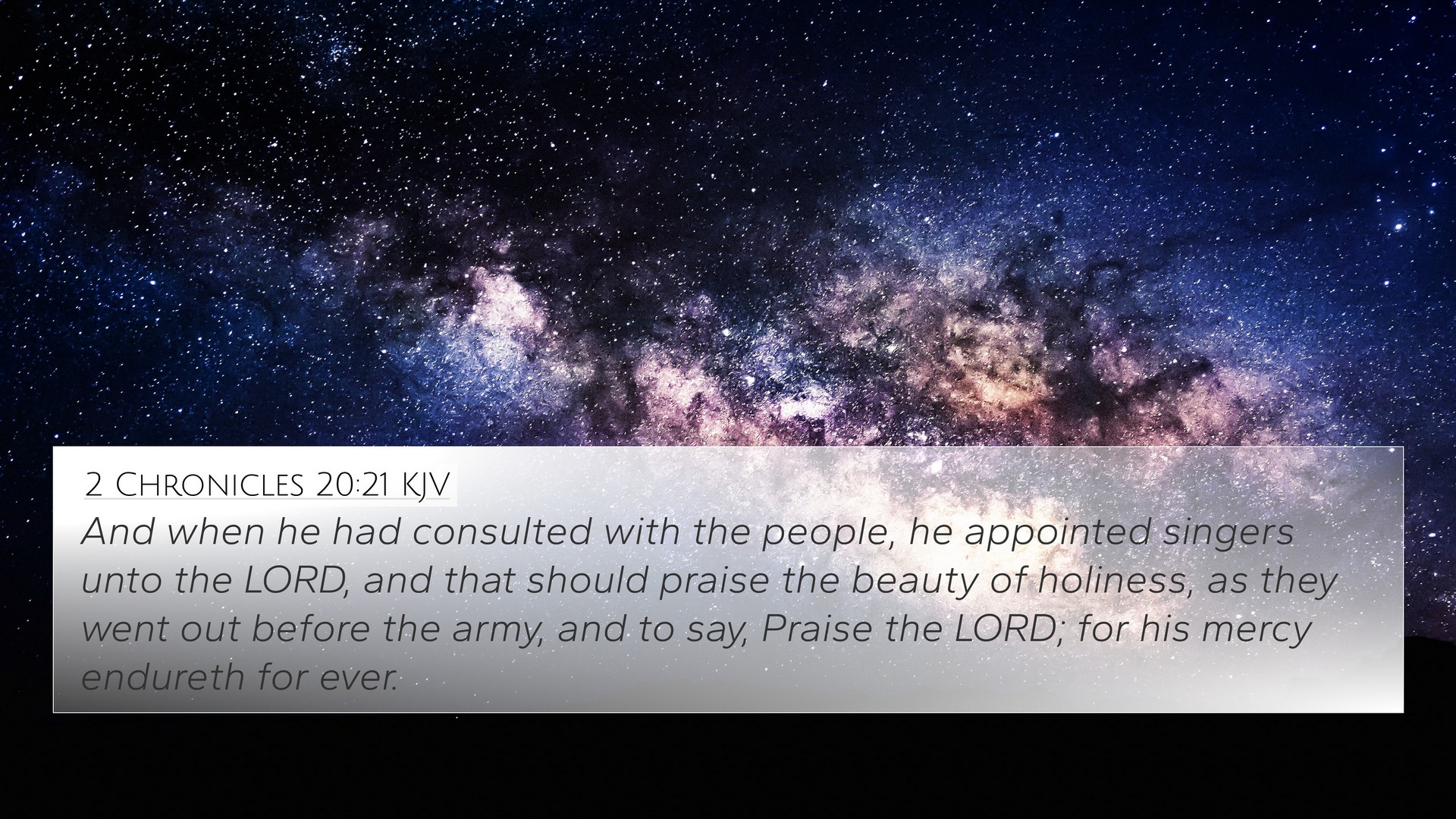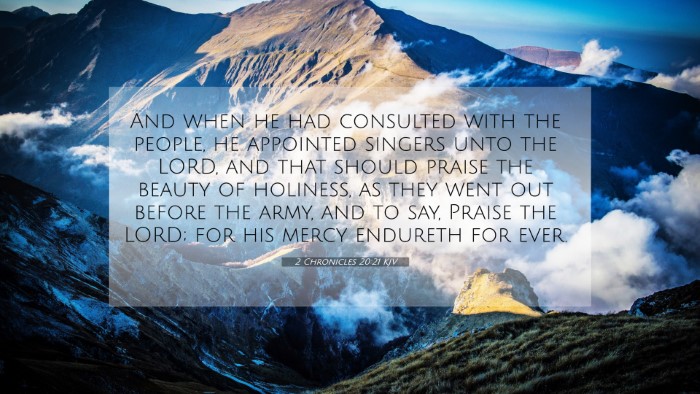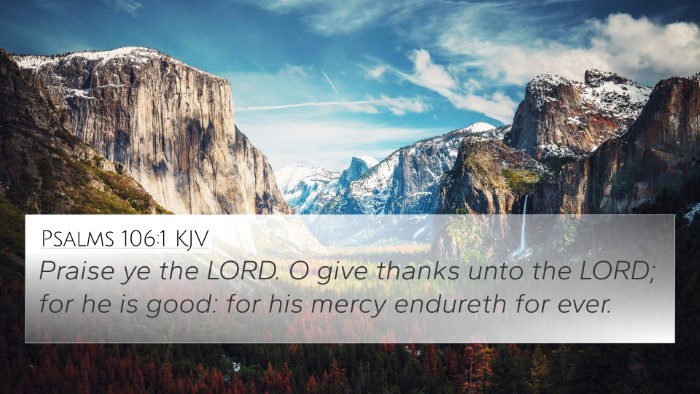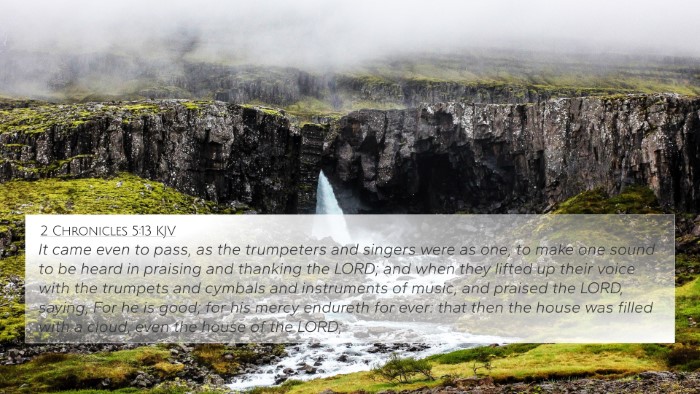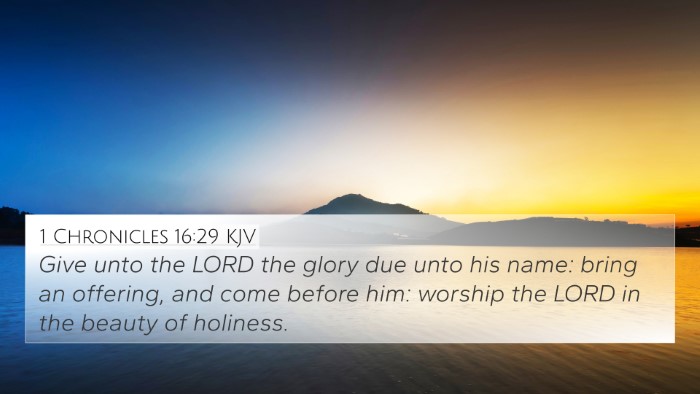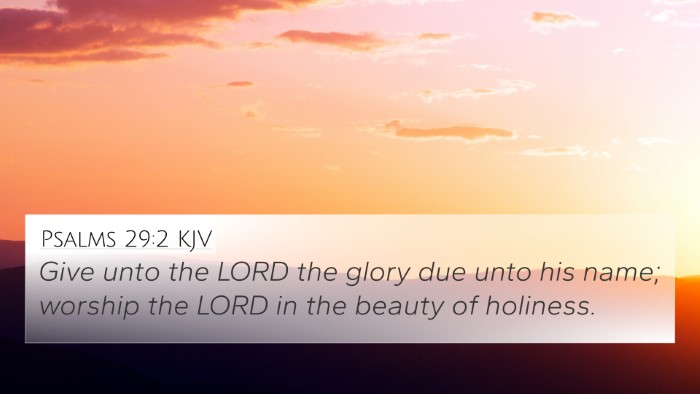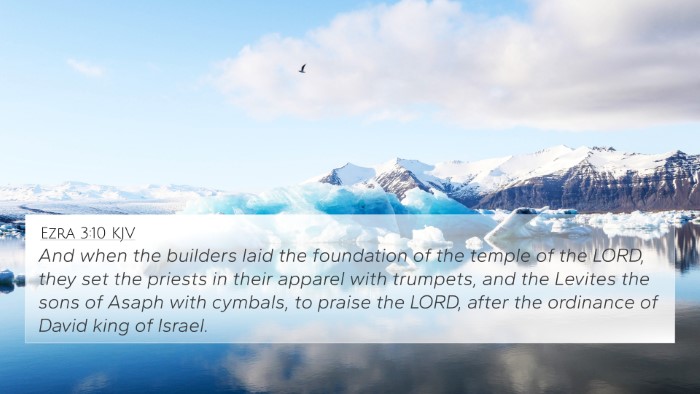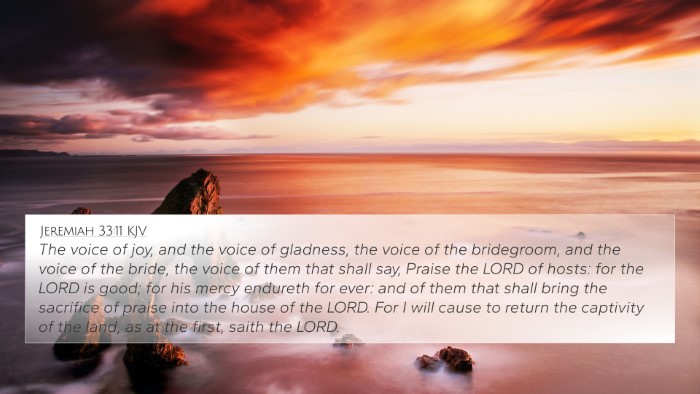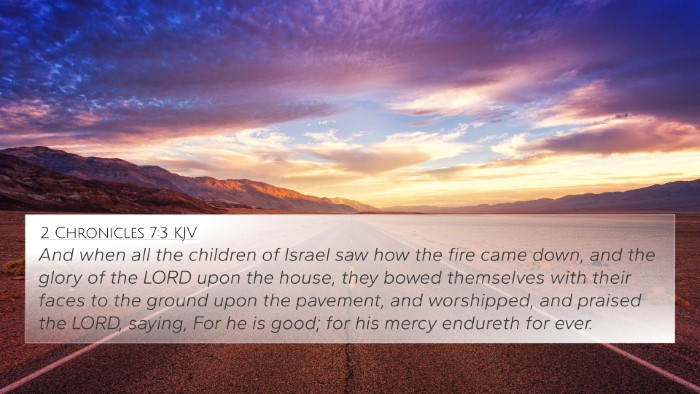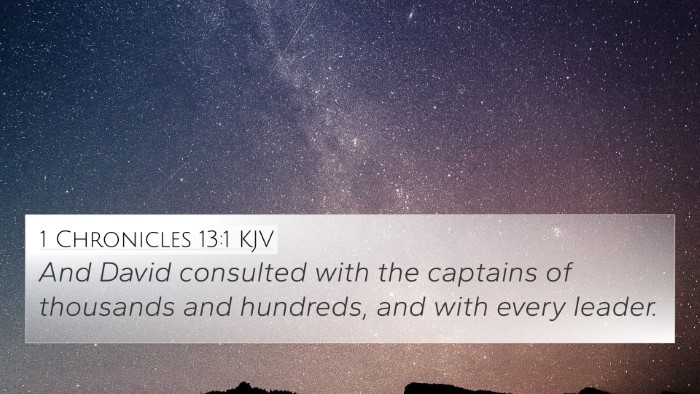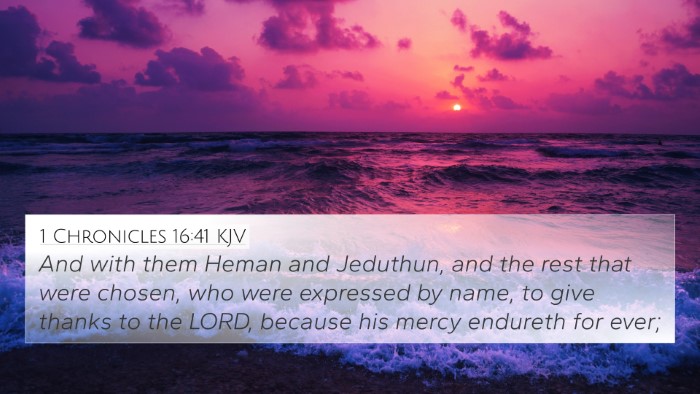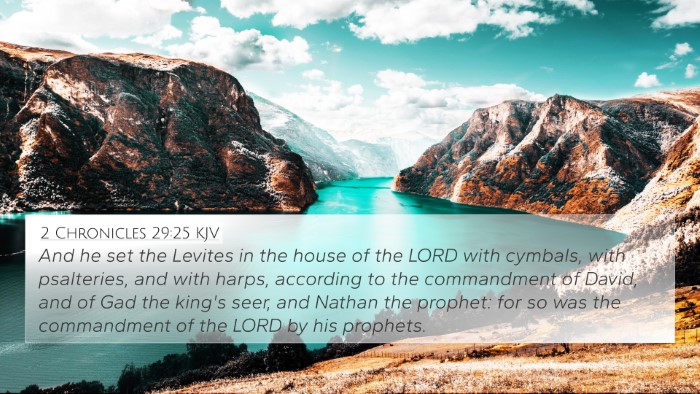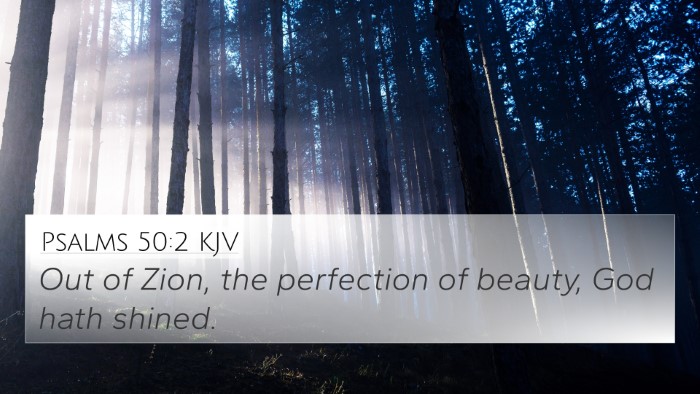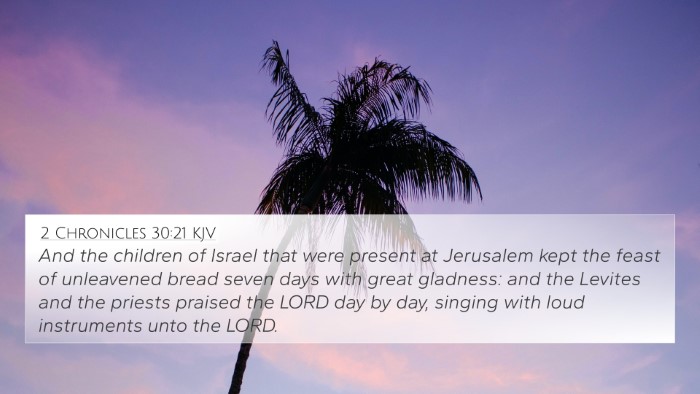2 Chronicles 20:21: "And when he had consulted with the people, he appointed singers unto the Lord, and that should praise the beauty of holiness, as they went out before the army, and to say, Praise the Lord; for his mercy endureth forever."
This verse speaks to the power of worship and praise in spiritual warfare, a profound moment in King Jehoshaphat's story where he turns to God in a time of crisis. The appointment of singers before the army highlights the importance of worship in the life of believers, demonstrating that trust in God can be expressed through communal and vocal praise.
Matthew Henry Commentary: Henry emphasizes that Jehoshaphat, in a moment of fear and uncertainty, sought the counsel of his people, showing a humility in governance. Instead of arming soldiers for battle, the king turns to praise, illustrating a faith that sees beyond immediate circumstances. Henry points out that the act of sending singers ahead of the army symbolizes God's strength being made perfect in our weakness.
Albert Barnes Commentary: Barnes draws attention to the significance of the phrase "the beauty of holiness." He notes that true worship involves recognizing God's sovereignty and grace, and that the mercies of God are a foundation for our praise. Barnes correlates this event with various Psalms that extol God's enduring mercy, suggesting that this practice of praise strategically encouraged the warriors while simultaneously invoking divine favor.
Adam Clarke Commentary: Clarke adds depth to the understanding of this verse by contextualizing the act of appointing singers. He argues that this was perhaps an unusual military strategy, yet it emphasizes reliance on God’s divine intervention. Clarke references parallel events in Scripture where worship led to miraculous occurrences, reinforcing that a heart positioned in worship can drastically alter circumstances.
Overall, this verse illustrates key themes of:
- Trust in God's deliverance: The act of sending singers denotes faith in God as the ultimate protector.
- Worship as a weapon: Praise becomes the forefront of their approach, indicating that worship has the power to shift spiritual atmospheres.
- The beauty of holiness: Recognizing God's nature and attributes is essential in cultivating a response of gratitude and praise.
Bible verse cross-references:
- Psalms 106:1: "Praise ye the LORD. O give thanks unto the LORD; for he is good: for his mercy endureth forever."
- Psalms 30:4: "Sing unto the LORD, O ye saints of his, and give thanks at the remembrance of his holiness."
- 1 Chronicles 16:29: "Give unto the LORD the glory due unto his name: bring an offering, and come before him: worship the LORD in the beauty of holiness."
- 2 Chronicles 5:13-14: "It came even to pass, as the trumpeters and singers were as one, to make one sound to be heard in praising and thanking the LORD..."
- Hebrews 13:15: "By him therefore let us offer the sacrifice of praise to God continually, that is, the fruit of our lips giving thanks to his name."
- Matthew 21:16: "...and said unto him, Hearest thou what these say? And Jesus saith unto them, Yea; have ye never read, Out of the mouth of babes and sucklings thou hast perfected praise?"
- Acts 16:25: "And at midnight Paul and Silas prayed, and sang praises unto God: and the prisoners heard them."
In summary, 2 Chronicles 20:21 acts as an essential reminder of how God calls us not merely to act but to worship as a fundamental part of our faith. This instance illustrates the power of collective praise and the importance of focusing on God's goodness, especially amidst trials.
Conclusion: Each of the referenced verses, connected through themes of God's mercy, the beauty of holiness, and the power of His name, serves as a reminder for believers today. Engaging in a cross-referencing Bible study helps reveal these connections, enriching one’s understanding and fortifying faith with the collective witness of Scripture.
